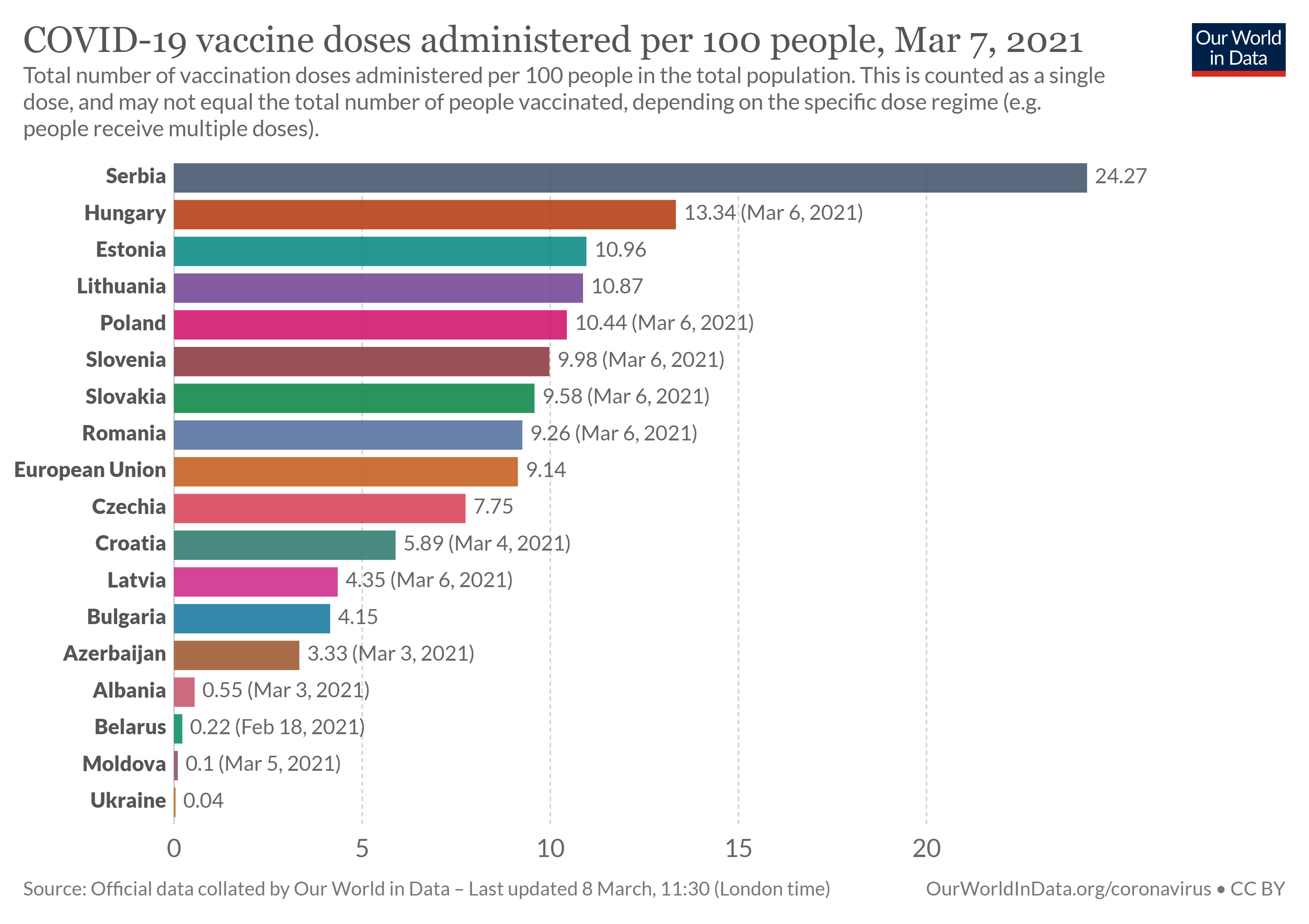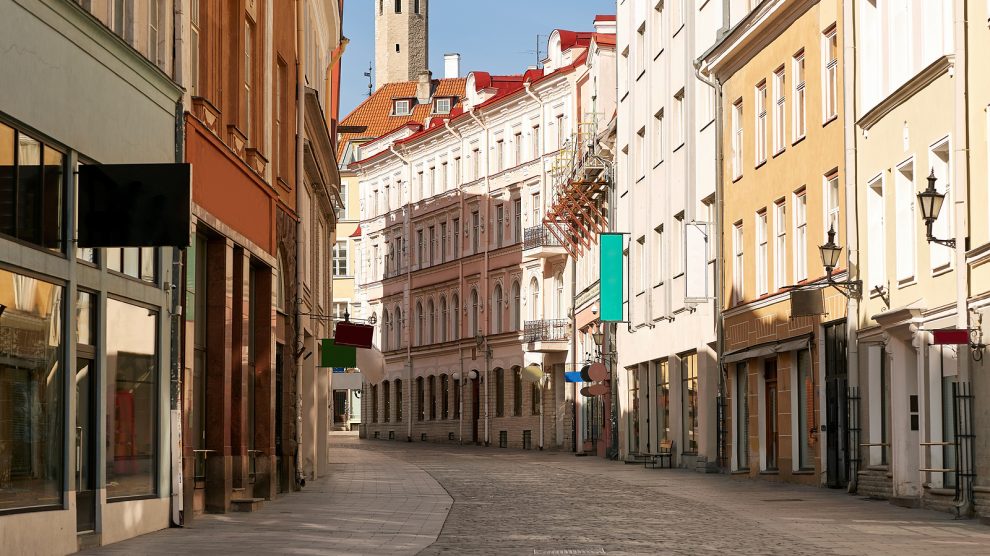Estonia and Hungary have both been forced to reintroduce stringent lockdowns in order to halt the spread of the Covid-19 virus.
Estonia will introduce a total lockdown from March 11 in an attempt to slow the spread of the coronavirus. The lockdown, which will see schools and all retail stores closed, except for those selling medicines, food and other essential items, will be in place for a month. Restaurants will be limited to serving only take-away food.
“The situation is especially critical in Tallinn and northern Estonia where hospitals are under great pressure,” said the country’s prime minister Kaja Kallas in a televised interview.
- How to accelerate recovery in emerging Europe and Central Asia
- Estonia and Georgia remain emerging Europe’s most free economies
- Slovakian PM’s secret purchase of Russian Covid-19 vaccine angers coalition partners
“However, the situation is very difficult all over Estonia. That’s why the government has decided to introduce additional restrictions with the aim of reducing contact to a minimum. It is the only way out of this crisis. How fast we can do that depends on everyone’s behaviour.”
Estonia’s government will also move to remote working, holding cabinet meetings online until at least the end of March.
Estonia currently has Europe’s second-highest rate of infection per one million people, at 1,335, behind only Czechia (1,572). Over the past seven days the rate of infection has increased by 74 per cent, driven by the spread of the Covid-19 variant first identified in the United Kingdom.
The good news for Estonians is that the country’s vaccination programme is currently one of the most efficient in Europe: more than 10 per cent of the population have received at least one dose of a vaccine, well ahead of the European Union average and, in emerging Europe, behind only Serbia and Hungary.

In Czechia, Deputy Prime Minister Jan Hamáček said on March 8 that new lockdown measures imposed on March 1 were already beginning to have a positive effect, but that “we have not yet.”
Czechia’s R-number fell to 0.97 on March 8, the first time it has been below one since the beginning of February.
Besides lockdown measures, Czechia has also increased its testing capacity over the past seven days and has ramped up its vaccination programme. However, the number of Czechs who have had at least one dose of a vaccine is still some way behind the EU average.
Czech Prime Minister Andrej Babiš is this week scheduled to meet his Israeli counterpart Benjamin Netanyahu to discuss policies to fight Covid-19. Hungarian Prime Minister Viktor Orbán will also meet with Mr Netanyahu.
Hungarian lockdown
Hungary was also forced to impose tough new lockdown measures on March 8 to curb a rise in infections, closing all school and most shops.
With nearly 16,000 confirmed deaths in a country of fewer than 10 million people, Hungary has the eighth worst death rate per one million inhabitants in the world, according to Johns Hopkins University.
“We can see that the third wave is spreading very forcefully, mainly due to (virus) variants,” said Hungar’s chief medical officer Cecilia Muller. “We can’t do anything else now but break the chain of infections.”
Hungary is one of just two EU countries to have approved the Sputnik V Russian-produced vaccine, as well as China’s Sinovac jab. Mr Orbán himself was himself inoculated with the Sinovac vaccine.
However, a report on March 8 revealed that more than 80 per cent of Hungarians to have received a vaccine had been administered with one of the three jabs approved by the EU: Pfizer, Moderna, and AstraZeneca.
Unlike many news and information platforms, Emerging Europe is free to read, and always will be. There is no paywall here. We are independent, not affiliated with nor representing any political party or business organisation. We want the very best for emerging Europe, nothing more, nothing less. Your support will help us continue to spread the word about this amazing region.
You can contribute here. Thank you.



